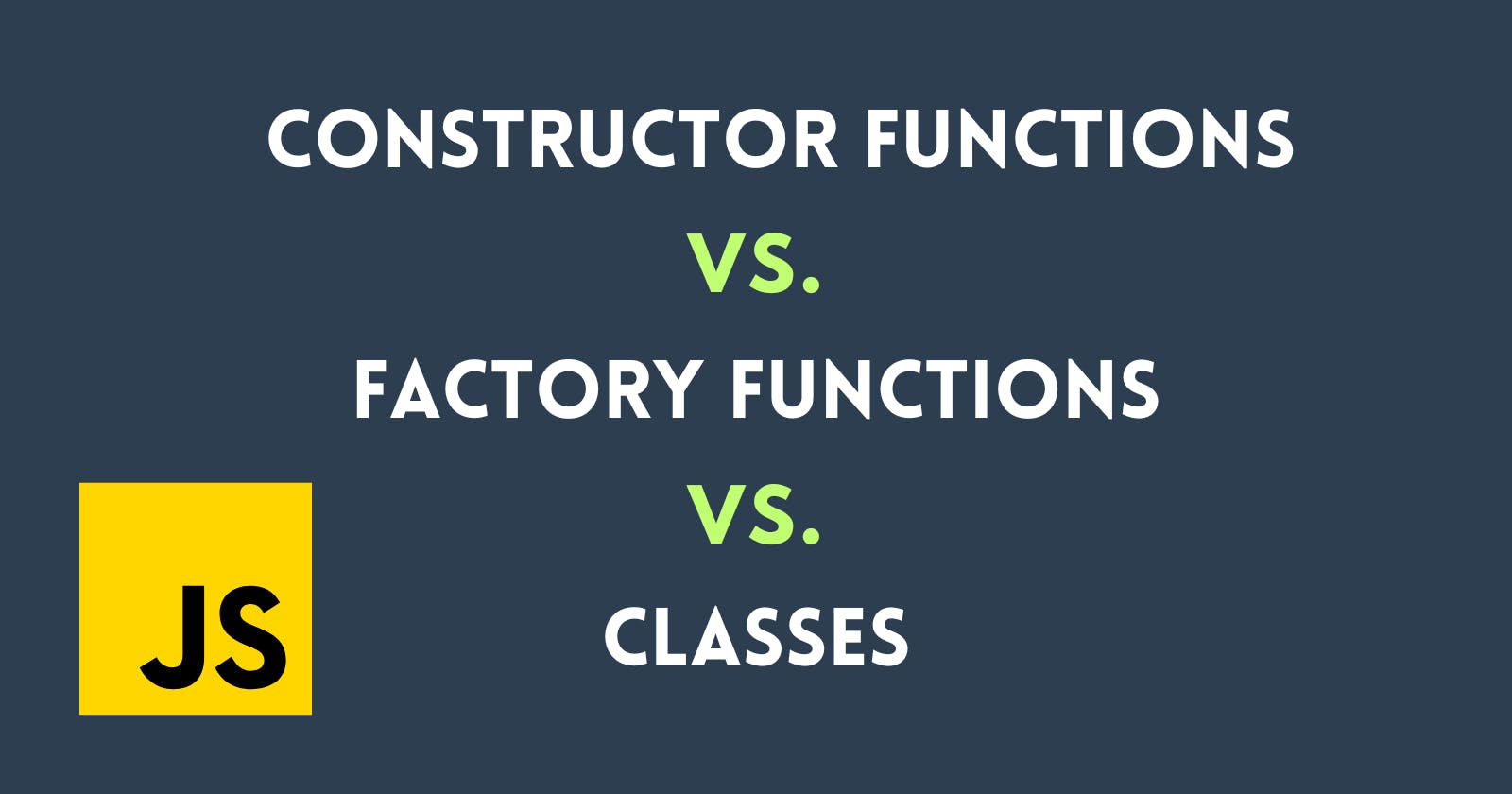Table of contents
Welcome to my first tech blog! 😎
In this one, I am going to tell you everything you need to know about constructor functions, factory functions, and classes in JavaScript.
So let's get started 🚀
Imagine you are a pastry chef, and you need to create different types of cakes. You have three options to do this - using a cake mold, a cookie cutter, or a cake recipe.
Constructor Functions
A constructor function is like a cake mold. It's a template that you can use to create new objects with the same properties and methods. For example, you can create a Cake constructor function that takes in parameters for the flavor and size of the cake and returns a new cake object with those properties. You can then use this constructor function to create multiple cakes with the same properties and methods.
function Cake(flavor, size) {
this.flavor = flavor;
this.size = size;
this.bake = function() {
console.log(`Baking a ${this.size} ${this.flavor} cake!`);
}
}
const vanillaCake = new Cake('vanilla', 'medium');
vanillaCake.bake(); // Baking a medium vanilla cake!
In this example, the Cake constructor function takes in parameters for the flavor and size of the cake and returns a new cake object with those properties. You can then use the new keyword to create a new cake object and call its bake() method.
Factory Functions
A factory function is like a cookie cutter. It's a function that returns a new object without using the new keyword. For example, you can create a CakeFactory function that takes in a flavor and size and returns a new cake object with those properties.
function CakeFactory(flavor, size) {
const cake = {};
cake.flavor = flavor;
cake.size = size;
cake.bake = function() {
console.log(`Baking a ${this.size} ${this.flavor} cake!`);
}
return cake;
}
const chocolateCake = CakeFactory('chocolate', 'large');
chocolateCake.bake(); // Baking a large chocolate cake!
In this example, the CakeFactory function takes in parameters for the flavor and size of the cake and returns a new cake object with those properties. You can then call the bake() method on the cake object.
Classes
A class is like a cake recipe. It's a blueprint that you can use to create new objects. For example, you can create a Cake class with properties and methods for the flavor and size of the cake.
Here's an example of a Cake class:
class Cake {
constructor(flavor, size) {
this.flavor = flavor;
this.size = size;
}
bake() {
console.log(`Baking a ${this.size} ${this.flavor} cake!`);
}
}
const strawberryCake = new Cake('strawberry', 'small');
strawberryCake.bake(); // Baking a small strawberry cake!
In this example, the Cake class has a constructor method that takes in parameters for the flavor and size of the cake and sets those properties on the cake object. It also has a bake() method that you can call on the cake object.
Summary
Constructor functions are like a recipe for making objects. You start by creating a blueprint for what you want the object to look like, and then you use the new keyword to make a copy of that object. It's like following a recipe to make a cake - you start with a set of ingredients and instructions, and then you use those to create a delicious dessert.
Factory functions, on the other hand, are like a magical kitchen gadget that instantly creates new objects. You don't need to use the new keyword or create a blueprint beforehand - you simply call the function and it creates a new object for you. It's like using a 3D printer to make a new cake - you just press a button and it out pops a fresh dessert.
Classes are like a fancy bakery where you can order customized cakes. You start by creating a blueprint for what you want the cake to look like, and then you use that blueprint to make as many cakes as you want. It's like going to a cake shop and ordering a personalized dessert - the bakery already has a set of recipes and designs, and they can use those to make a cake that's tailored to your preferences.
So, whether you're following a recipe, using a kitchen gadget, or ordering from a fancy bakery, there are many ways to create objects in JavaScript. The key is to choose the method that's best suited for your needs - whether that's a constructor function, a factory function, or a class.
That's it, I hope you're not craving desserts like I am. I'm gonna go now and treat myself a tasty chocolate truffle pastry 😋
Thanks for the read 😃
